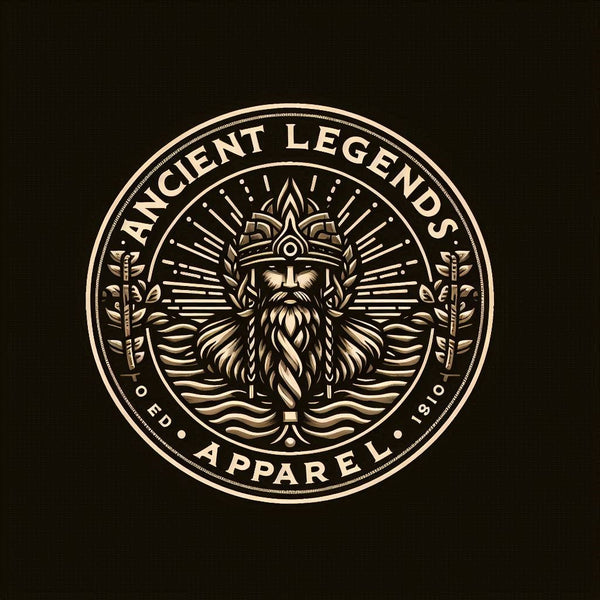Myths and Misconceptions About Lost Civilizations
Karl FShare
INTRODUCTION
In the hallowed hallways of history, the whispers of lost civilizations echo with haunting resonance, tales spun by the looms of time and imagination. They harken us to vanished cities and forgotten peoples, shrouded in the mists of mythology, folklore, and symbol-laden history. Yet in these echoes, misconceptions also grow, obscuring the truth of their intriguing yet elusive pasts. This exploration delves into such enigmatic worlds, unpeeling layers of lore and legend, cultural analysis, and historic mystery. It beckons to listeners of narrative and scholars of ancient tales alike—to journey into antiquity's twilight realms, where truth intertwines with fantasy, and history mingles with myth.
ORIGIN AND CULTURAL CONTEXT
The first stop on this journey into the unknown is Atlantis, a civilization believed to have been swallowed by the sea in a single, cataclysmic day and night. The earliest references to its existence are credited to Plato, the famed Greek philosopher of the 5th century BC. He recounted the legend in his dialogues "Timaeus" and "Critias," describing Atlantis as a powerful, almost utopian society located "beyond the Pillars of Hercules." Influenced by Athenian pride and fear of their Mediterranean rivals, the legend has since been perceived as an ancient allegory of the struggle between the virtuous self-governed and the malevolent tyrants.
THE LEGEND OR STORY
Atlantis, as Plato depicted it, was paradise unparalleled. Magnificent palaces decorated with gold, silver, and rare gemstones towered over lush landscapes and vast rivers. The Atlanteans, a race of demigods born of Poseidon, the God of Sea, and mortal women, held sway over other territories. Despite their divine background, they gradually failed in their morality, succumbing to greed, lust for power, and corruption. Angered by their folly, Zeus inflicted a divine punishment—a cataclysm that sank Atlantis into the sea, erasing it from the face of the earth.
INTERPRETATIONS AND SYMBOLISM
Interpretations of this myth run deep and wide. Some scholars see Plato's Atlantis as merely allegorical, a cautionary tale against overreaching ambition and moral failure that resonates with the ancient Greek concept of 'hubris'—the dangerous depravity of excessive pride. On a symbolic level, Atlantis embodies the paradise lost, a utopia devolved into dystopia, emblematic of civilizations' cyclical rise and fall. Its catastrophic vanishing symbolizes divine retribution, validating the ancient belief in the gods' wrathful response to human impiety.
COMPARISONS IN OTHER CULTURES
Throughout history and across continents, legends eerily alike to that of Atlantis endure. In Indian mythology, a similar tale is found within the Mahabharata, an ancient epic that tells of Dvaraka, a grand city submerged by the sea. Similar stories persist in the Aztec lore of Aztlan, the ancestral homeland mysteriously lost, or the Japanese folklore surrounding the undersea palace of Ryūgū-jō. These striking parallels suggest a shared human predilection for narratives of lost homelands, symbolizing transience and the eternal quest for origins.
MODERN REFERENCES AND POP CULTURE
Woven through the rich tapestry of modern culture, the Atlantis myth has ascended to an archetypal status. Reimagined in literature, films, comics, and video games, it fuels endless fantasies about advanced ancient civilizations wiped out by their own hubris or natural catastrophes. From Jules Verne's "20,000 Leagues Under the Sea" to the animated film "Atlantis: The Lost Empire," the tale endures, threading through our collective psyche, shaping societal perceptions of ancient civilizations and their fates.
LEGACY AND LASTING MYSTERIES
While Atlantis remains lost, its legacy as a powerful myth lives on, continually inspiring and challenging our notions of history and humanity's place within it. Despite countless quests for its physical location—from the canals of Mars to the depths of the Atlantic—its tangible existence remains elusive, shrouded in mystery. However, this lack of concrete evidence only seems to strengthen its paradoxical reality, solidifying its place as a testament to human imagination's incredible singularities. Whether real or imagined, this long-lost civilization waits silently beneath the sea of our shared consciousness, bridging the gap between history and legend, fact and myth. It explores the unending human search for origins and endings, taking us on a fascinating journey into the veiled recesses of time.
